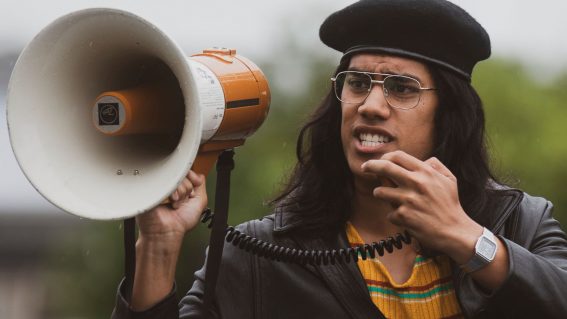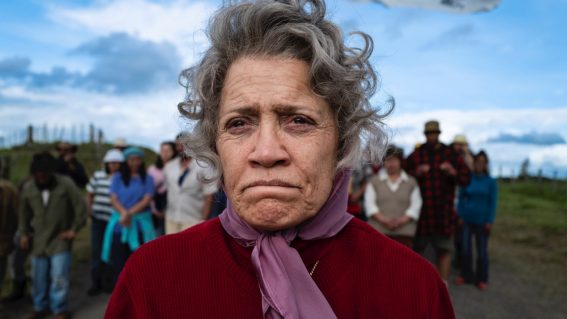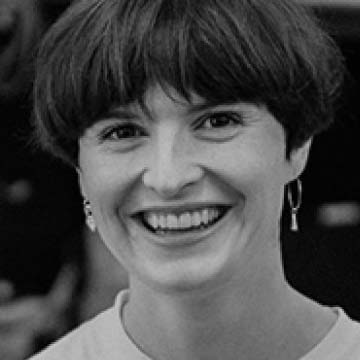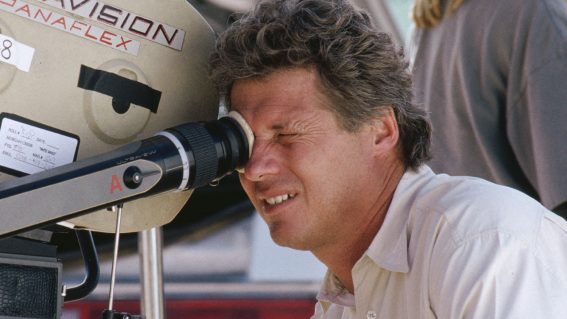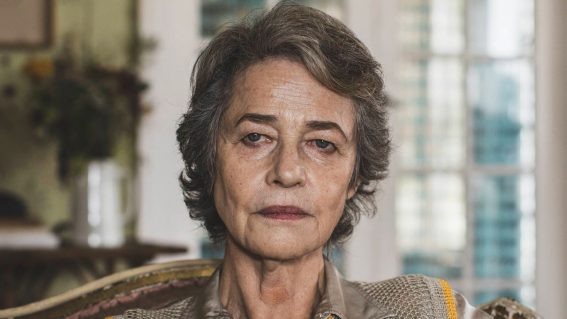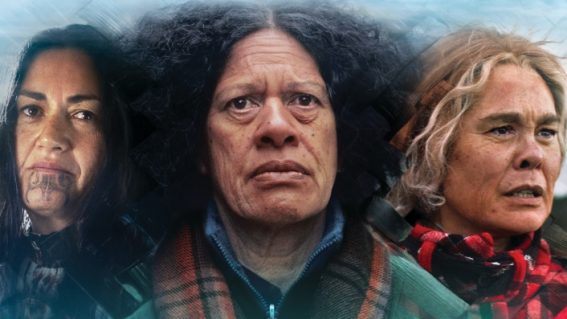Discussion around the Power of Inclusion continues

On October 3 and 4, 60+ international and local voices shared their thoughts and experiences on representation and inclusion in the industry at the Power of Inclusion summit (watch video from the event here, including keynote speeches by Heperi Mita and Yara Shahidi).
Flicks covered the event in an article that drew a response from organisers the NZ Film Commission, challenging some of its assertions. The original article was updated to include comments from the NZFC. Screen industry icon John Barnett has since contacted Flicks with remarks about the NZFC response, and you can read Barnett’s reaction in full below.
In the interest of opening this up to further discussion, Flicks encourages other members of the film community and summit attendees to submit their thoughts for publication. You can do so by emailing editor Steve Newall.
Flicks contributor (and young award-winning filmmaker herself), Amanda Jane Robinson detailed the wins and missed opportunities of the Power of Inclusion summit in a piece you can read here.
Robinson’s analysis of the summit noted where it succeeded in, but was also critical of some aspects, including comments about the pricing, noting “many would-be attendees were held back by the exorbitant ticket prices. I myself would not have been able to afford to attend if it weren’t for my media pass.”
Her story also made the observation that “The large majority of the summit’s speakers were wealthy white women interested in “lean-in” feminism — a focus on women CEOs, leadership strategies, and how many women have directed the top 100 highest-grossing films of all time — rather than the issues that more closely affect many underrepresented filmmakers.”
These assertions were challenged by the NZFC, who contacted Flicks to outline “the inaccuracies we would most like corrected”. Robinson’s story was updated to include the NZFC response in full.
Producer and industry veteran John Barnett subsequently approached Flicks with his thoughts on the NZFC’s response to Robinson’s story. His remarks are published below. As mentioned above, we’d love to hear from other members of the film community and summit attendees. You can add to the discussion by emailing us with your comments for publication.
John Barnett
Shame on you NZFC.
A week ago you poured all your efforts, staff hours and significant money into the Power of Inclusion Summit.
And this week when one brave young intelligent woman shared her thoughts about the good and the not so good of the Summit, you brought down the full force of your wrath on her in a way that will prevent her from seeing herself ‘included’ as a valued member of the NZ Film Industry.
Let me start by saying I wasn’t at the Summit, so I can’t pass judgement on its content, and I won’t.
What I can do however is stand beside Amanda Jane Robinson who wrote an informative, well-reasoned personal opinion piece on it.
How did you respond?
Well, your opening line puts her firmly in her place:
“We (the NZFC) have outlined the inaccuracies we would most like to correct”
In other words you dismissed everything she said by inferring that her ‘opinion’ was inaccurate on everything, but you are only going to deal with some statements in order to diminish her whole piece.
What a low blow!
Amanda’s significant thrust was about the cost of the Summit, and she explained why she found it expensive.
It was, she said, equal to 2 weeks of her rent, and she would have to take 2 unpaid days to attend.
You then spent several hundred words telling her she was wrong.
From your lofty heights, are you unaware that perception of cost and value is up to the payer not the payee?
We all see things we would like to have, and most of us make a comparative assessment as to whether or not we can afford them.
If we can’t, it’s often because it costs too much for us at the time.
So Amanda was not inaccurate.
She simply described her response to the ticket price.
But since not one of the 20+ NZFC employees who attended paid 1 cent to attend, maybe they lost that perspective.
And every one of those NZFC staff also continued to receive their wages whilst they attended, and if they came from out of town, they had their airfares, accommodation, taxis and meals paid for as well.
So, maybe you have lost touch with the realities that face NZ filmmakers; female, male, LBGTQI, able + disabled, Maori, Pasifika, Asian + Pakeha!
To continue putting her in her place, you went to great lengths to talk about the costs of other conferences, (non film industry), without acknowledging that they were mostly for corporate attendees.
You also tried to justify that this Summit was of more importance than other film industry conferences.
Again, that judgement is in the eye of the potential attendee.
You talked about the Summit’s international media coverage (Huffington Post, SBS Australia etc).
Most NZ filmmakers don’t see that coverage but they may now ask if that coverage will create any new jobs in NZ.
For the NZFC that coverage is important, I understand that.
But for local technicians it adds no perceived value to the ticket price.
“Inclusion” means not only gender, race, physical ability, it also includes the right to question and hold divergent views.
Amanda was positive about a number of elements at the Summit in her coverage.
You dismissed all of that, and in a staggering display of hubris you destroyed the idea behind the Power of Inclusion.
John Barnett ONZM
The NZ Film Commission was approached for comment and advised they don’t feel the need to comment on this story any further.

